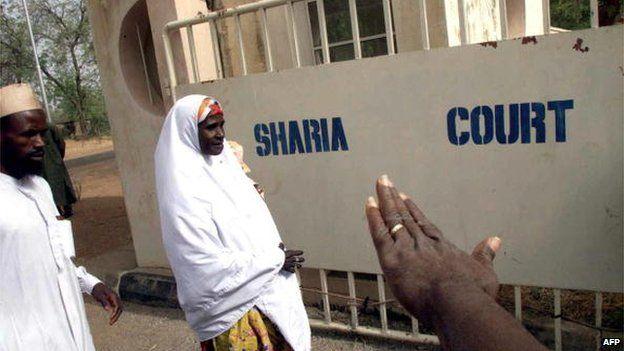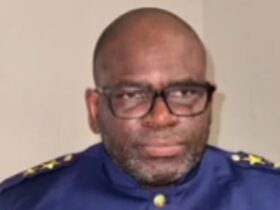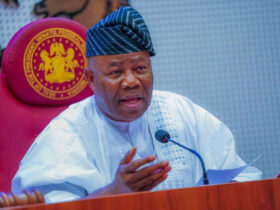Justice Abdurraheem Sayi, the Qadi of the Shari’ah Court of Appeal in Kwara State, has stated that Muslims do not require approval from state authorities or traditional rulers to establish and operate Shari’ah arbitration panels in the South-West.
He dismissed objections to the establishment of these panels as “legally baseless, an embarrassment to legal minds, and a mere expression of Islamophobia syndrome,” noting that the affected states had deliberately overlooked these objections.

Justice Sayi made these remarks while delivering a lecture titled “Shari’ah in South-West Nigeria” at the University of Lagos Muslim Alumni’s 30th Pre-Ramadan Lecture, themed “The Transformative Power of Ramadan.”
The event took place on Sunday at the J.F. Ade Ajayi Auditorium, UNILAG.
The lecture, which aimed to address misconceptions about Shari’ah law and arbitration in the region, was attended by Lagos State Deputy Governor Obafemi Hamzat, Ogun State Deputy Governor Noimot Salako, and other prominent figures.
Justice Sayi emphasised that arbitration is a contractual matter that does not require government approval, stating, “There’s no confusion in the Nigerian Constitution. Arbitration is by contract.
“Nobody needs the approval of the Federal Government to operate it. As powerful as the President is, his authority does not extend to approving the Constitution of an arbitration panel. It is purely contractual.”
He also stated that Muslims do not require authorization from religious authorities or traditional leaders to run Shari’ah panels, as the law permits private citizens to establish them.
READ ALSO: 2027: No Muslim Should Vote for Politicians Against Sharia Law – South-West Muslim Clerics Warn
He said, “We don’t need the approval of any state authority, let alone a monarch. Associations, including political parties, can establish small committees to resolve disputes involving their members.
“All the Muslim panels that I know of always hold their sittings inside mosques. What business do pastors or monarchs have in this matter? Somebody should tell the monarchs to know their boundaries.”
Referring to the Arbitration and Mediation Act of 2023, the judge noted that the legislation not only permits private citizens to establish arbitral panels but also empowers them to choose the legal principles that will govern these panels.
Justice Sayi emphasized the success of Shari’ah arbitration in Lagos, pointing out that “there have been numerous occasions where High Court judges informed litigants of their inability to intervene, subsequently directing them to the Independent Shari’ah panel.”
He questioned the absence of legal structures like Shari’ah courts for Muslims in Lagos, Osun, and Ogun—states where they represent a substantial portion of the population—arguing that this limits their ability to resolve personal and family disputes according to their faith.
Clarifying the nature of Shari’ah panels, the judge explained that they “do not replace conventional courts but operate on a contractual basis, where participation is voluntary. However, once someone engages in the process, the resulting decision becomes legally binding.”
Discussing the wider legal context, Justice Sayi argued that although the law promotes inclusivity and prioritizes national unity over regional biases, Muslims in South-West Nigeria are still excluded from the region’s family law framework.
He urged the South-West governments to allow the establishment of Shari’ah courts to give Muslims a sense of belonging and provide a legal framework for resolving matters such as child custody, marriage dissolution, and others.
He said, “There is no single provision for Muslims in the family laws of the South-West. It’s as if we are second-class citizens or do not belong to these states.
“There is no single court in the region competent to dissolve an Islamic marriage or handle child custody cases following Islamic law. Shari’ah is a fundamental right of Muslims.”
Professor Mashood Baderin from the School of Oriental and African Studies at the University of London also spoke at the event, delivering a lecture titled “Islam at the Intersection of Humanity and Religion.”
He encouraged Muslims to express their faith in ways that benefit society, emphasizing the importance of practices such as observing the five daily prayers.
(Punch)
Follow the Parallel Facts channel on WhatsApp: https://whatsapp.com/channel/0029VaCQSAoHgZWiDjR3Kn2E









Leave a Reply